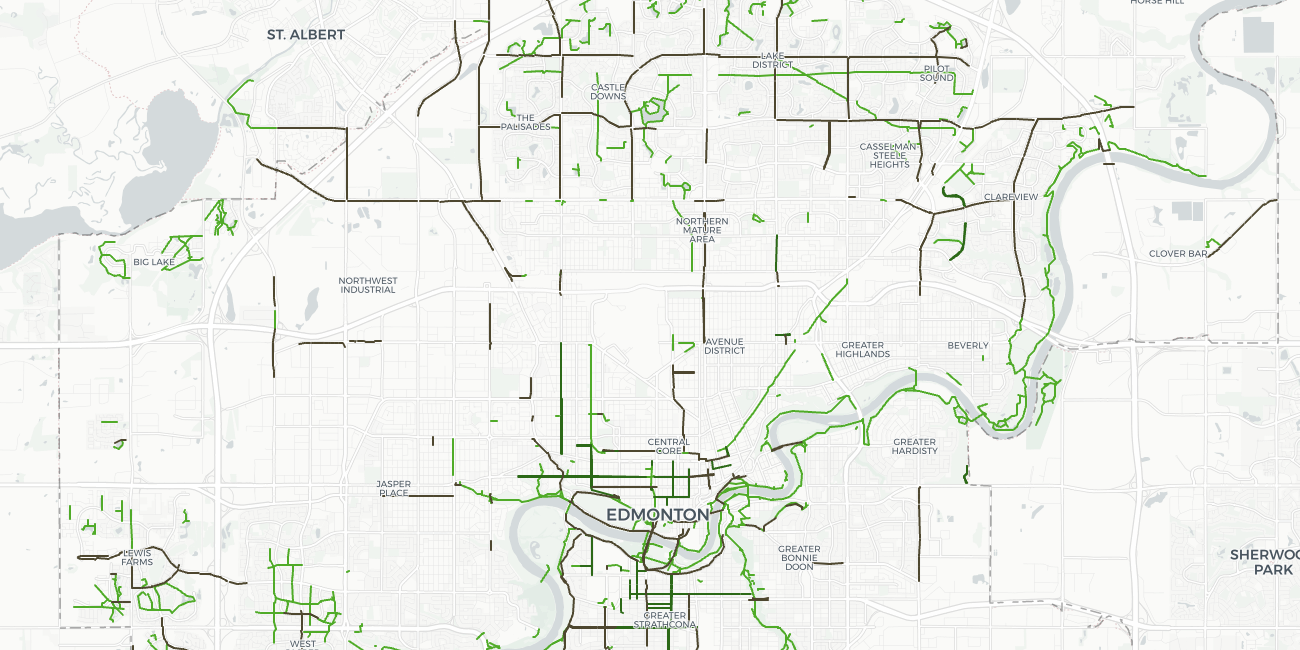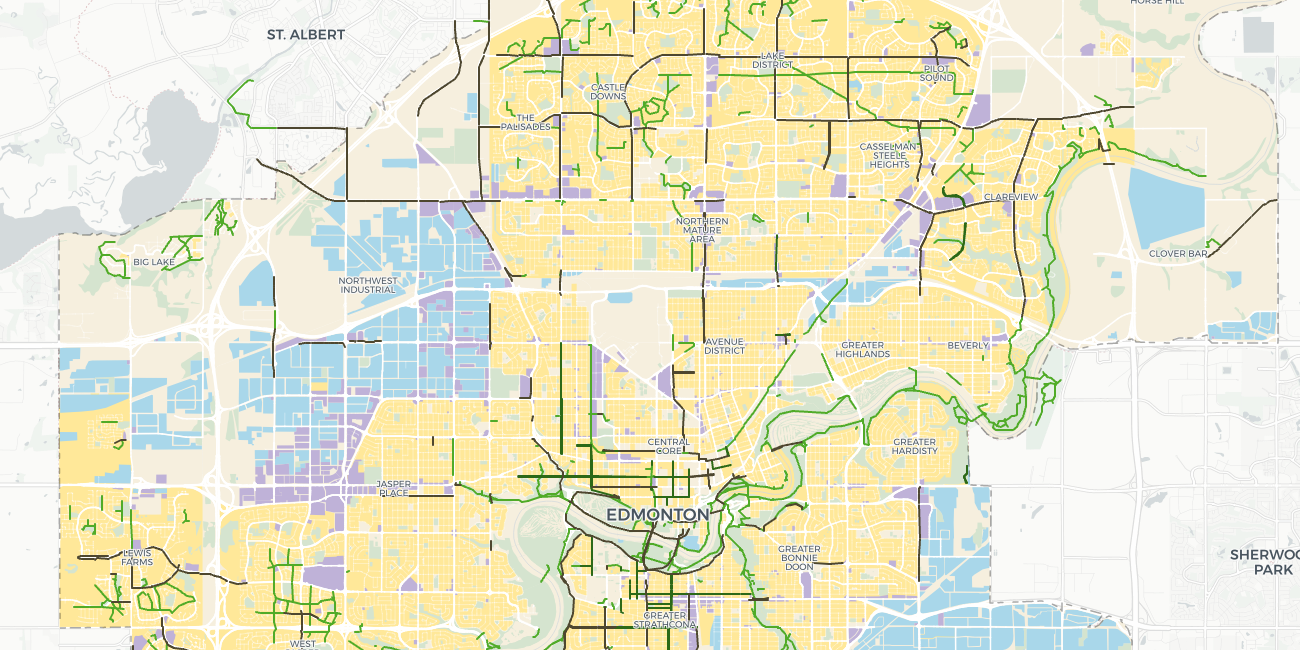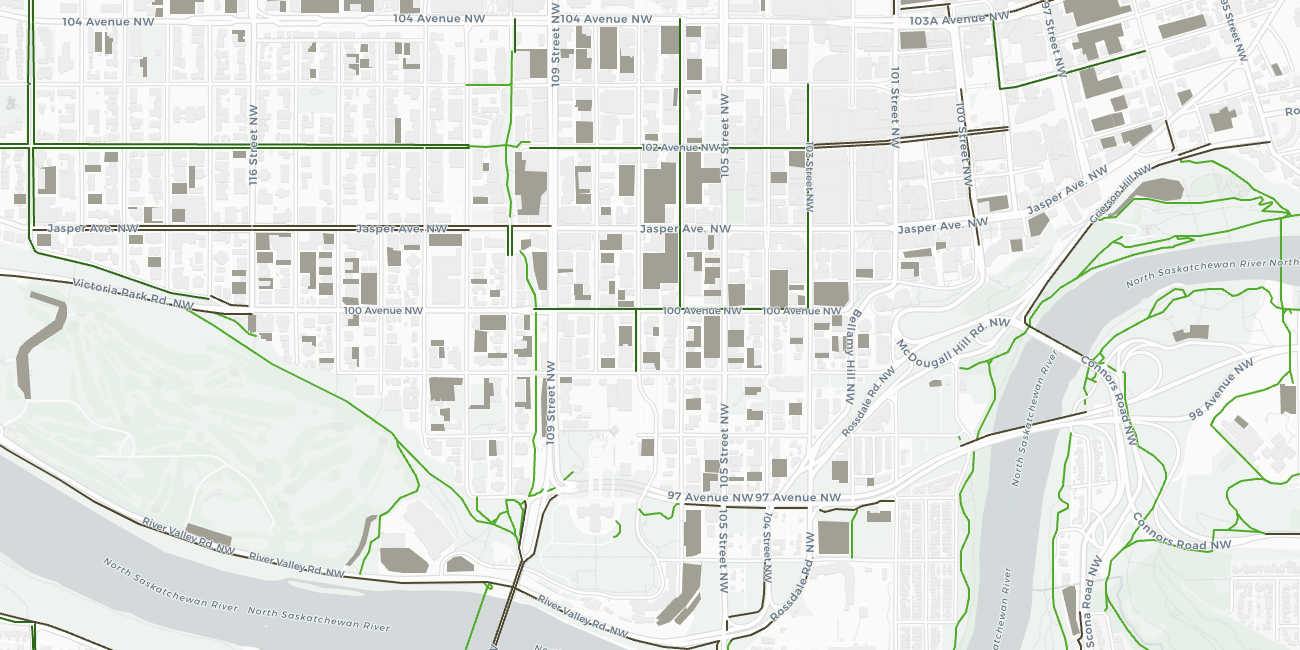Shifting to delivery modes that emit less
Another way to limit the impacts of urban freight is to transfer the delivery of goods from older, larger, high-emitting combustion-engine vehicles — like light- or medium-duty delivery trucks — to smaller, cleaner, more nimble delivery modes. The smaller vehicles could be electric delivery bicycles or electric cargo bicycles. Using cyclelogistics (moving goods by bicycles) or public transit to make deliveries reduces the energy used and amount of space occupied by conventional delivery vehicles. It also cuts emissions and reduces congestion.
Integrate public infrastructure, such as bike lanes and surface parking lots
Bike paths and bike lanes
The data from bike paths and bike lanes show dedicated infrastructure for cyclists that can be used in "cyclelogistics," an emerging form of urban delivery that involves integrating bicycles into the goods-movement network. Its efficiency can be boosted through access to a well-connected network of on-street and off-street cycling infrastructure that gives bikes better mobility than is afforded vehicles on city streets. In this way, dedicated infrastructure creates an advantage for cyclelogistics over vehicles and helps facilitate mode shift and emissions reduction.
Bikeshare stations
Data on bikeshare stations offer a clear indicator of the potential of cyclelogistics and mode shift away from motor-vehicle urban delivery. Bikeshare stations are now in urban centres across Canada where the population size, businesses, and the location of shopping, services, and access to safe cycling streets warrant frequent use. Bikeshare station locations indicate optimal spatial distribution of cyclelogistics hubs as well as the size of the demand and applicability of the transportation mode.
Parking lots
Because of the smaller freight-carrying capacity, cyclelogistics require urban consolidation centres or “minihubs.” Parking lots, especially underused, publicly owned surface parking, would be a ready-made location for minihubs to support increasing the use of cyclelogistics. In Germany, the City of Berlin built a consolidation centre on a surface parking lot using old shipping containers and then leased the space to major delivery companies using cargocycles (electric cargo bikes) in the city.
Edmonton has an expansive network of on-street and off-street cycling infrastructure. It also has ample surface parking space in central locations. These factors make it possible for Edmonton to advance cyclelogistics in its downtown core where employment density and surface parking lot space would support urban consolidation centres. But this will require investments in cycling infrastructure to crystallize the business advantages of cyclelogistics.
Edmonton could add more bike lanes in the north-western area of the downtown to make direct connections between neighbourhoods and industrial and commercial land uses. Well-integrated bike lanes are a better option for cargo-bike deliveries than paths on boulevards of arterial-type streets that lack intersection treatments.
Edmonton could choose a surface parking lot close to one of the downtown bike lanes — maybe on 100 or 102 Avenue — and convert it to a cyclelogistics hub and consolidation centre, leasing the space to delivery companies.
More robust data needed for successful cyclelogistics pilots
Pilot projects
Cyclelogistics pilot projects are rolling out in Canada, including in Toronto and Montreal. The Montreal pilot project, called Colibri, uses an old downtown bus station as a minihub.
Help build data
We need data on existing urban freight-trip routes, origins, and destinations to establish the quantity and spatial distribution of trips done within a radius of eight kilometres. This will help build the business case for this mode of urban freight in dense areas of Canadian cities.



